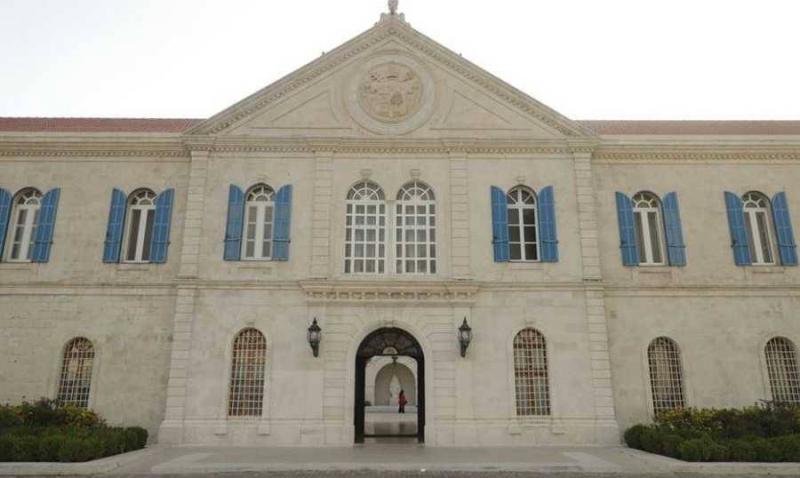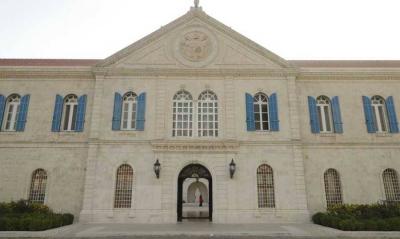The patriarchal edifice in Bakirkh adopts a spatial and temporal pathway aimed at discussing the content of a document intended for exploring possible ideas to end the disruptive vacancy destabilizing the Lebanese constitutional entity. This comes after Maronite Patriarch Mar Bechara Boutros Al-Rahi took it upon himself to commend the paper crystallized into a "Neutral Decentralized Civil State" and to assert that its implementation contributes to finding a solution instead of an international conference, as stated in "An-Nahar."
The points around which the details revolved proposed organizing some constitutional articles to improve the management of the system and constitutional institutions while limiting the obstruction of their work. It emphasized the importance of achieving extensive administrative and developmental decentralization, creating district councils, and granting them wide administrative, developmental, and financial powers. The principles of competence, expertise, and independence were not overlooked as essential criteria for central administration and liberating jobs from sectarianism, confessionalism, and political dependency.
While the core document's contents were refined by political activists gathered under the umbrella of the "Identity and Sovereignty Meeting" headed by former Minister Youssef Salameh, the dialogue endeavor to discuss and explore its potential development, hosted by the patriarchal edifice on February 29, will include various parliamentary blocs. Members of the meeting had previously toured political parties and met with deputies from various blocs, some of whom praised the paper's content and considered that its proposals align with their ideas, especially regarding implementing administrative and developmental decentralization alongside the foundations of a neutral civil state.
Notably, the document proposed the abolition of sectarianism in leadership positions and favored establishing a Senate composed of sixty members representing Lebanese sectarian groups and spiritual families, with a defined mandate, quorum, and the majority required to make decisions, limiting its powers to existential issues and ratifying laws passed by the parliament that could impact the covenant of shared life, state unity, institutional integrity, and ensuring freedoms and equality among citizens, as well as commitment to neutrality.
The paper stipulated adding powers to the office of the presidency, including the right to dissolve the parliament with the cabinet's approval within legal and constitutional limitations, fixing a maximum time limit of two months to form a government, and considering the designated president as having resigned if unable to form during that period. Upon the expiration of this period, the designated president might present his government formation to the parliament and the Senate, which must convene within a maximum of ten days. If a qualified majority is obtained, the president must reassign the task and issue the decrees.
It proposed enacting a new electoral law for the parliament limiting the number of members to sixty original and sixty substitute without receiving salaries or allowances, distributed equally among historical districts without any sectarian constraints. It encouraged enacting a constitutional law allowing the election of the president by the people through direct general voting in one degree, requiring the candidate to be a Lebanese Christian elected in the Senate, nominated by his bloc, and collecting signatures from sixteen members of the Senate with no fewer than eight Christian signatures. If difficulty arises, the first two candidates with the most signatures may run.
In the meantime, former minister Youssef Salameh states that members of the "Identity and Sovereignty Meeting" do not support the federal ideas being proposed, but the document they rely on underscores extensive administrative and developmental decentralization to protect diversity and supports a foreign policy distanced from engaging in conflicts and wars without overlooking supportive positions on rightful issues. He clarifies to "An-Nahar" that the goal is to reach developmental, financial, and administrative decentralization that reduces corruption in state sectors and helps local regions shape their own developmental projects, with a percentage of taxes and fees allocated from the districts to benefit the central state. He notes that the meeting's members have not yet studied the financial margin that can be allocated to districts and regions, which requires further consultations.
It is also evident from his impressions that "the foundational model presented has been circulated with various political forces that praised its content. Why has the paper not resonated despite months passing since its approval, contrary to other proposals?" The head of the "Identity and Sovereignty Meeting" responds: "The meeting's members lack financial resources or authority, despite the national goals of formulating such proposals since 2007 under the supervision of the late patriarch Mar Nasrallah Boutros Sfeir." The Lebanese MTV station broadcasts efforts aimed at implementing the document based on its sovereign and national principles.
He concludes that "inviting deputies to Bakirkh aims to work on providing their feedback on the document based on Patriarch Al-Rahi's request, who adopted the document and proposed a meeting of parliamentarians from the various blocs at the patriarchal edifice to discuss its provisions."
In conclusion, according to "An-Nahar," the pursuit of extensive decentralization and constitutional institutions constitutes one of the primary objectives targeted in the vision refined by the members of the "Identity and Sovereignty Meeting," with the aim of contributing to the reuniting of the fragmented state and strengthening essential constitutional and administrative institutions at the level of the central state or united regions, and enacting necessary laws. The vision also does not overlook the participation of Lebanese expatriates in national and political life by respecting their right to run for office and vote in their places of residence concerning the districts they are registered in according to regulatory laws. It favors strengthening the civil state and abolishing sectarianism in the offices of the President, government, parliament, and Senate, noting that the position of president should be limited to Christian sects, while the position of prime minister and the presidency of the parliament should not discriminate between Sunni, Shia, Druze, and Muslim minority candidates. No sect should monopolize two of the leadership positions. Will such proposals be feasible in a future phase?




